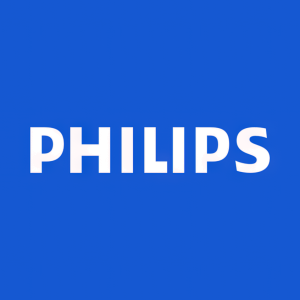Philips Sounds transform the sound of care, reducing patient monitoring alarm noise by up to 66%
February 6, 2024
FDA 510(k) clearance of latest Philips IntelliVue patient monitor software helps drive alarm management strategies toward a more peaceful, healing environment for patients and caregivers
Amsterdam, the Netherlands – Advances in healthcare technology continue to drive patient monitoring technology into the future; however, alarm sounds have remained similar, if not unchanged, for many years. Until now. Royal Philips (NYSE: PHG, AEX: PHIA), has received 510(k) clearance for its latest IntelliVue patient monitor software, which features the long-anticipated availability of several new solutions, including the award-winning Philips Sounds alarm package, making it available in the USA and more than 200 countries worldwide.
Noise in hospitals can impact the quality of life and health of patients, their families, and their care providers. In the average ICU, patient monitors account for up to
“While alarms in acute care settings must be effective, they should be sensible, informative, and respectful of the surrounding environment and the people in it,” says Christoph Pedain, Business Leader, Hospital Patient Monitoring, Philips. “Throughout the process, we asked for input from care providers, administrators, patients and their families who are exposed to these alarms regularly and leveraged powerful data to help improve the experience overall.”
The IntelliVue alarm evolution involved a significant research investment to capture and implement input from care providers and patients in alarm-heavy environments. Together, Philips and the sound design group SenSound worked to soften and round the alarm tones and adjust alarm intervals to more gently signal status or request action using a more soothing – yet still impactful – set of alarm sounds. These changes are designed to help improve the patient and caregiver experience. Philips’ new patient monitoring sounds have been proven to reduce alarm noise by up to
“Alarm management within the hospital setting is complicated and multifaceted, and even the smallest change will have an enormous impact,” says Andreas Walden, Usability Leader, Hospital Patient Monitoring at Philips. “When we think about medical alarms generally, we make sure they are audible, prompt action, and can be differentiated from other sounds. But we haven’t asked questions like ‘Is this something a nurse on a 12-hour shift should hear every day?’ or ‘Can a sick patient hear this without getting scared?’ The ability to address those concerns is the beginning of transforming the entire soundscape in the hospital.”
With over one million IntelliVue patient monitors in use [6], the evolution of our monitor sounds means the potential to enhance and change the soundscape in healthcare facilities worldwide, helping to advance the healing environment for both patients and hospital staff.
Beyond the sound of care
Additional noteworthy capabilities within the new IntelliVue software update, including Philips Visual Patient Avatar, are now available in the USA and more than 200 countries worldwide. For more information about Philips’ portfolio of alarm management solutions, visit philips.com/alarm-sounds or contact your regional sales rep for local availability.
[1] Cho, O. M., Kim, H., Lee, Y. W., & Cho, I. (2016). Clinical Alarms in Intensive Care Units: Perceived Obstacles of Alarm Management and Alarm Fatigue in Nurses. Healthcare Informatics Research, 22(1), 46–53.
[2] Jones K. (2014). Alarm fatigue a top patient safety hazard. CMAJ : Canadian Medical Association journal = journal de l’Association medicale canadienne, 186(3), 178. https://doi.org/10.1503/cmaj.109-4696.
[3] Topf & Dillon, 1988; Topf, 2000; Morrison et al., 2003; Ryherd et al., 2008; J. P. Keller et al., 2011; Watson et al., 2015; Cho et al., 2016.
[4] Topf, 2000; Basner, 2011; Shivers et al., 2013; Basner et al., 2014; Sakallaris et al., 2015; Sen & Sen, 2020
[5] Compared to previous Philips alarm sounds as it relates to intervals. The Philips 2021 interval for cyan alarms is every 2 seconds compared to every 6 seconds with traditional sounds.
[6] Based in internal sales data.
For further information, please contact:
Meredith Amoroso
Philips Global Press Office
Tel: +1 724 584 8991
E-Mail: meredith.amoroso@philips.com
About Royal Philips
Royal Philips (NYSE: PHG, AEX: PHIA) is a leading health technology company focused on improving people's health and well-being through meaningful innovation. Philips’ patient- and people-centric innovation leverages advanced technology and deep clinical and consumer insights to deliver personal health solutions for consumers and professional health solutions for healthcare providers and their patients in the hospital and the home. Headquartered in the Netherlands, the company is a leader in diagnostic imaging, ultrasound, image-guided therapy, monitoring and enterprise informatics, as well as in personal health. Philips generated 2023 sales of EUR 18.2 billion and employs approximately 69,700 employees with sales and services in more than 100 countries. News about Philips can be found at www.philips.com/newscenter.
Attachments
- Philips Sounds now available at hospital bedsides in more than 200 countries
- Philips and SenSound reimagined patient monitoring to both soften and reduce alarm sounds
- An acute care nurse turns off a bedside alarm










